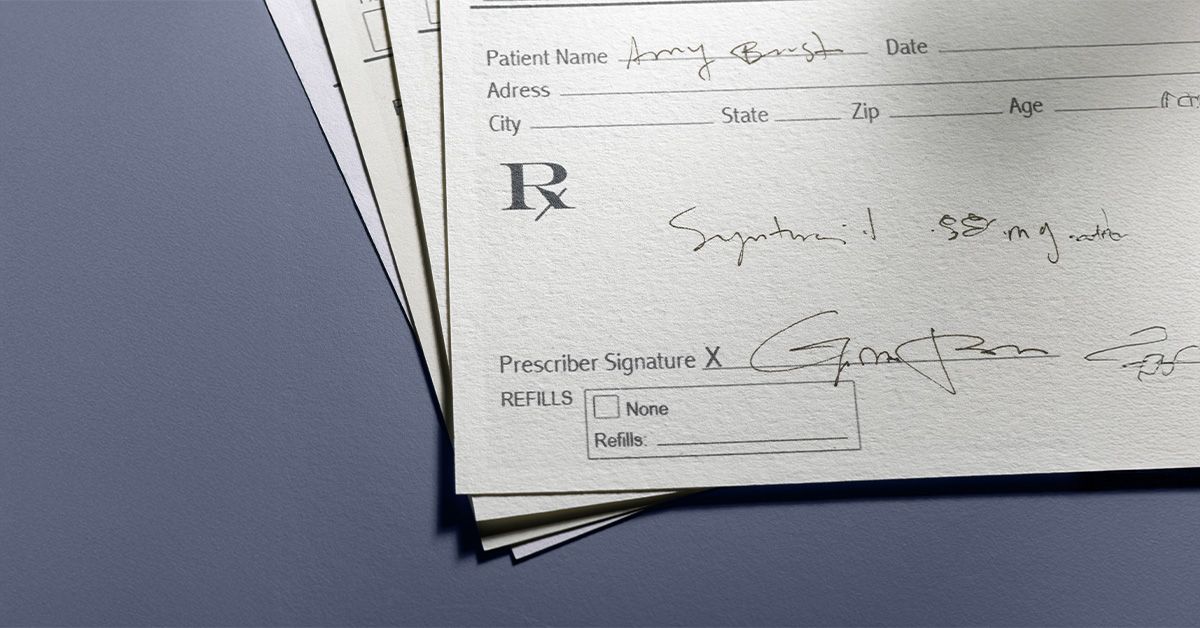Hey there! You know what they say about age being just a number? Well, when it comes to food, it's more like age is a whole new chapter in your health story. I've been thinking about this lately - not because I'm worried, but because I care about helping people enjoy their golden years to the fullest. And guess what plays a starring role in that? Yep, the foods we choose to put on our plate.
Let me ask you something - have you ever noticed how your body seems to react differently to certain foods now compared to when you were younger? Maybe that spicy dish that used to be your go-to doesn't sit as well anymore, or those late-night snacks seem to leave you feeling sluggish the next morning? It's not your imagination - your body's changing, and what worked before might need some adjustments now.
Listen, nobody wants to feel like they're on some restrictive diet, especially when life's supposed to be about enjoying things. But here's the thing - making smart food choices isn't about taking away your freedom. It's actually about giving you more of what you really want: energy, independence, and the ability to do the things you love without feeling weighed down. Think of it like editing a movie - you're just trimming the parts that don't serve the story, so the good stuff can really shine.
Risky Food Choices
Let's talk about something that might surprise you. Your immune system, bless its heart, starts to slow down a bit as we get older. It's like switching from a sports car to a more reliable sedan - still great, just not quite as speedy. This means those little food mishaps that might have been a minor inconvenience in your twenties could become a much bigger deal now.
I remember talking to my neighbor, Martha, about this. She's 72 and still as sharp as they come, but she shared how a simple case of food poisoning from deli meat landed her in the hospital for three days. "I never thought much about it before," she told me, "but now I know that what seems harmless can really knock you down." Her story stuck with me because it highlights something so important - we need to be more thoughtful about food safety as we age.
The list of foods that pose higher risks might seem overwhelming at first, but once you understand why, it becomes easier to make substitutions that still taste great. Think of it this way: you're not giving up anything you love; you're just choosing the versions that love you back.
Foods to Avoid for Safety
Let me share what I've learned from talking with nutritionists and doctors about the foods that really pose those extra risks. Raw or undercooked meats and eggs? Definitely reconsider. That runny egg on your toast or rare steak that you've enjoyed for years? They might need to become more "well-done" friends now.
Raw sprouts - I know, they seem so healthy and fresh - but here's the thing. They thrive in warm, moist environments that are also perfect for bacteria. It's like nature's double-edged sword. And those unpasteurized dairy products? The same applies. I had a friend who swore by raw milk until he ended up with a pretty nasty stomach bug. When I asked him about it later, he laughed and said, "I guess pasteurized milk isn't so bad after all."
Deli meats and cold cuts are a bit trickier because they're so convenient, but when eaten cold, they can harbor listeria. Here's the good news - heat them up until they're steaming hot, and you're back in business. It's like giving your microwave a workout while staying safe. Premade deli salads? Same story. Better to make your own or choose options that you know have been properly handled and stored.
Limit Processed Foods Elderly
Now let's talk about processed foods. I know, I know - they're everywhere. From that frozen dinner when you're too tired to cook, to the crackers you munch while watching TV, they've become such a normal part of our lives. But as we get older, our hearts and blood vessels start to appreciate the love we show them through our food choices.
Think about processed foods like that friend who's fun to have around occasionally but causes drama if you spend too much time with them. A little sodium here and there isn't terrible, but when you're getting most of your daily intake from packaged foods, that's when things start to get complicated. High blood pressure isn't just a number on a chart - it's something that can really cramp your style.
I worked with a client once who had been eating mostly frozen meals because she found cooking intimidating. Together, we slowly swapped out some of those high-sodium options for fresh alternatives. It didn't happen overnight, but within a few months, she told me she had more energy than she'd had in years. "I thought I was saving time," she said, "but I was actually losing it by feeling tired all the time."
Process Processed Foods
Let's break down what exactly we're talking about here. Those chips and crackers that seem harmless? They're often loaded with sodium and unhealthy fats. And don't get me started on those convenient frozen meals. Don't get me wrong - I'm not saying never, but think of them like dessert. Everyone deserves to enjoy their favorites, but they shouldn't be the main course.
Hot dogs and bacon might be comfort foods, but they're also processed meats that have been linked to various health concerns. I know people who've successfully made the switch to turkey bacon or plant-based alternatives and say they taste just as good. The key is finding replacements that satisfy your taste buds without compromising your health goals.
Fried foods and fast food? This is where I have to be honest - I absolutely love a good burger and fries. But here's what I've found: instead of giving them up completely, I've learned to enjoy them as occasional treats rather than regular meals. It's about creating a sustainable balance that works for your lifestyle and health needs.
Reduce Sugar Intake Aging
Okay, sugar talk. I can already see some of you rolling your eyes, thinking, "Here we go with the sugar lectures." But hear me out - this isn't about guilt or deprivation. It's about understanding how our bodies process sugar differently as we age, and how that affects everything from our energy levels to our mental clarity.
As we get older, our bodies become less efficient at managing blood sugar spikes. It's kind of like how learning a new language gets harder as we age - not impossible, just requiring a bit more attention and care. When your blood sugar goes up and down like a roller coaster, it can leave you feeling drained, irritable, and honestly, not at your best.
I had a conversation with my dentist recently about this, and she shared something that really stuck with me. "I'm seeing more adults in their 60s and 70s dealing with tooth decay than ever before," she said. "And often, it's linked to sugary drinks and snacks that people don't realize are affecting their oral health." It's a reminder that what we eat affects our whole body, including parts we might not immediately think about.
Hidden Sugar Sources
Here's where it gets interesting - sugar isn't always obvious. Those sodas and sports drinks? They're like sugar bombs disguised as refreshment. I was shocked when I looked at the label on a popular fruit drink and saw it had more sugar than a candy bar.
Desserts and baked goods seem obvious, but what about those breakfast cereals that market themselves as healthy? I did a little experiment with some common cereals, and the sugar content was eye-opening. Sometimes it's listed right at the top of the ingredients - that's how much is in there.
Here's something that might surprise you: even "sugar-free" processed foods can be problematic. Artificial sweeteners can cause digestive upset for some people, and there's ongoing research about how they affect our metabolism. It's like trying to fix one problem but creating another.
But here's the beautiful part - natural sugars from whole fruits? They come with fiber, vitamins, and all sorts of good stuff that helps your body process them more gently. So you don't have to give up sweetness entirely; you just need to be more strategic about where it comes from.
Unhealthy Fats in Aging
Let's chat about fats for a minute. I know there's been a lot of confusion about dietary fats over the years, and honestly, it's enough to make anyone's head spin. But here's what I've learned is most important for aging well: not all fats are created equal, and some are definitely better allies than others when it comes to heart and brain health.
Think of trans fats like that toxic friend who looks great on the surface but wreaks havoc behind the scenes. They raise your bad LDL cholesterol while lowering the good HDL cholesterol - like a double whammy of bad news for your cardiovascular system. The good news? Many countries have actually banned trans fats in processed foods, so they're becoming harder to find in our food supply.
Saturated fats are a bit more nuanced. They're not the villain they were once made out to be, but when consumed in large amounts, especially as we age, they can still contribute to heart disease risk. It's about moderation and making smart choices.
Fat Substitutions
The exciting part is discovering all the amazing alternatives available to us. Olive oil, for instance, is like liquid gold for your heart. I've started using it for everything - drizzling over vegetables, in homemade salad dressings, even in some baking recipes where it works surprisingly well.
Nuts and avocados are nutritional powerhouses that provide healthy fats along with protein, fiber, and all sorts of vitamins and minerals. I have a friend who started adding avocado to her morning smoothie, and she swears it keeps her full much longer than her previous breakfast routine.
Fatty fish like salmon, mackerel, and sardines are loaded with omega-3 fatty acids that support both heart and brain health. When I first tried sardines, I thought, "There's no way I'm going to like these." But prepared well with some herbs and lemon, they've become one of my favorite sources of healthy fats.
Low Sodium Diet Seniors
Blood pressure tends to be something that creeps up on us as we age, kind of like how that old sweater you keep wearing gets smaller over time without you noticing. Before you know it, what was once a comfortable fit has become restrictive. Managing sodium intake becomes crucial for keeping those numbers in a healthy range.
I remember my dad's frustration when his doctor recommended a lower sodium diet. He loved his salty snacks and thought there would be nothing left to enjoy. But we worked together to discover herbs, spices, and citrus zest that could bring incredible flavor without the salt. Now he actually prefers his food this way - it's like his taste buds woke up and discovered a whole new world of flavors.
Many seniors live with some degree of high blood pressure, and excess salt can make it harder for the body to regulate fluid balance. It's like trying to control traffic flow when there are too many cars on the road. Reducing sodium gives your body a better chance to keep things running smoothly.
Sodium Sources
Canned soups and broths are often loaded with sodium - sometimes providing nearly a day's worth in a single serving. I've found that making homemade versions with low-sodium broth and fresh ingredients actually tastes better than the store-bought alternatives.
Condiments are like little sodium bombs hiding in plain sight. That soy sauce you drizzle on your stir-fry? Ketchup on your burger? Even pickles, which I personally love, can pack a serious sodium punch. The key is using them more thoughtfully - maybe a little less soy sauce and a squeeze of lime instead.
Processed meats deserve special mention here. Bacon, ham, sausages - they're delicious but also incredibly high in sodium. One of my favorite swaps has been using herbs and spices to create my own seasoning blends for meats, which adds flavor without the extra salt.
Restaurant meals are tricky because sodium content can be unpredictable. Even salads can be salt traps with hidden dressings and processed ingredients. I've learned to ask questions and make specific requests - it's amazing how accommodating most restaurants are when you explain your dietary needs.
Food Medication Interactions
This is one that doesn't get enough attention, but it's incredibly important. As we age, we often take more medications, and some of these can interact with foods in ways that might surprise us. It's like having two people in your kitchen trying to cook different recipes at the same time - sometimes they work well together, sometimes they create chaos.
Grapefruit juice is probably the most famous example. I worked with a client who was puzzled why his blood pressure medication seemed less effective. When we dug deeper, we discovered he was having grapefruit juice with breakfast every morning. The juice was interfering with how his body absorbed the medication. Once he switched to orange juice, things improved significantly.
Alcohol is another area that requires thoughtful consideration. It can reduce the effectiveness of many medications while also increasing drowsiness and other side effects. This doesn't mean complete elimination for everyone, but it does mean being more intentional about consumption, especially when taking certain medications.
Medication Considerations
Dairy products can interfere with the absorption of certain antibiotics and osteoporosis medications. It's not that you have to give up dairy forever, but timing matters. Taking these medications with water instead of milk, and spacing out dairy consumption, can make a significant difference in their effectiveness.
Painkillers, anxiety medications, and diabetes treatments can all interact with alcohol in ways that might be dangerous. I know it's easy to think, "I'll just have one glass of wine with dinner," but when you're taking medications, that glass might have a much stronger effect than you expect.
The bottom line here is communication. Talk to your doctor or pharmacist about what foods might interact with your specific medications. They're there to help you navigate these complexities, and most are happy to explain what you need to know to stay safe and healthy.
Dietary Adjustments
As we age, our bodies go through all sorts of changes that can affect how we eat and digest food. Dental issues might make certain foods challenging to chew. Digestive changes can mean that foods that used to be easy on your stomach now cause discomfort. And let's be honest - sometimes our taste buds become less sensitive, making everything taste a bit bland.
I remember helping my aunt transition her diet after some dental work. She was frustrated that she had to give up many of her favorite foods. But we got creative - instead of raw carrots, we tried roasted ones. Instead of tough meats, we experimented with slow-cooked options. She discovered she actually liked some of the new preparations better than the originals.
Eating Comfort
Hard vegetables like raw carrots or tough greens can be modified by cooking them until tender. Steaming, roasting, or braising brings out flavors in ways that make vegetables more appealing while also making them easier to chew and digest. I've found that roasting brings out natural sweetness in vegetables that can be incredibly satisfying.
Beans and cruciferous vegetables like broccoli and cauliflower can cause gas and bloating for some people, especially as we age and our digestive systems slow down. Soaking beans before cooking, eating smaller portions, or using digestive enzyme supplements can help make these nutritious foods more comfortable to enjoy.
Caffeine is something many of us love, but having it late in the day can really impact sleep quality. I used to be a coffee drinker all day long, but as I got older, I noticed that afternoon coffee was keeping me awake at night. Switching to decaf after 2 PM made a huge difference in my sleep.
Conclusion
Taking care of yourself as you age isn't about following a bunch of restrictive rules that make life less enjoyable. It's about becoming more intentional about the choices that support your vitality and independence. Some foods that were perfectly fine when you were younger might now pose unnecessary risks or make you feel less than your best.
Think of this guidance as your roadmap to eating in a way that helps you show up as your best self. It's not about what you're giving up - it's about what you're gaining. More energy, better sleep, improved mood, and the physical capability to do the things that matter most to you.
The beautiful thing is that there are almost always alternatives that taste great while supporting your health goals. Swapping out high-sodium ingredients for herbs and spices can actually make your food taste more vibrant. Choosing healthy fats over processed ones can leave you feeling satisfied rather than sluggish. And learning about food-medication interactions can help you get the most benefit from your treatments.
I encourage you to use this information as a conversation starter with your healthcare providers, family members who help with meal planning, or anyone else involved in your care. Don't hesitate to ask questions and get clarification on anything that's unclear. Your health is worth that extra effort.
Remember, aging well doesn't have to be complicated or restrictive. With a little knowledge and some creative substitutions, you can continue to enjoy delicious, satisfying meals while supporting your body's needs. The goal isn't perfection - it's progress. Small, thoughtful changes can add up to significant improvements in how you feel every day.
If you've made some successful swaps or discoveries in your own eating journey, I'd love to hear about them. What changes have made the biggest difference for you? Share your experiences in the comments below - we can all learn from each other's wisdom.
FAQs
What foods should seniors avoid for safety?
Seniors should avoid raw or undercooked meats and eggs, unpasteurized dairy, raw sprouts, and cold deli meats due to higher risks of foodborne illness.
Why is it important to limit processed foods in older adults?
Processed foods are often high in sodium, unhealthy fats, and additives that can increase the risk of heart disease, high blood pressure, and other chronic conditions.
How does sugar intake affect aging?
As we age, the body’s ability to regulate blood sugar declines, making excessive sugar intake more likely to cause energy crashes, weight gain, and dental issues.
Which fats should be avoided by older adults?
Trans fats and excessive saturated fats should be limited to support heart and brain health. Opt for healthier fats like those from olive oil, nuts, and fatty fish.
Can food interact with medications in seniors?
Yes, certain foods like grapefruit juice, alcohol, and dairy can interfere with medication absorption or increase side effects. Always consult with a healthcare provider.
Disclaimer: This article is for informational purposes only and does not constitute medical advice. Always consult with a healthcare professional before starting any new treatment regimen.
Related Coverage
Find the best Medicare in Delaware options for you or your loved ones with our simple guide to coverage, costs, and enrollment....
Navigating Medicare in Ohio doesn't have to be hard. Find the right coverage with our simple guide to plans, costs, and enrollment....
As death nears, dying patients often emit strange smells from physiological changes and reduced hygiene. Learn what causes odors at end of life and how to manage them....
Compare Louisiana Medicare plans 2025. Get help choosing the right coverage for your health needs and budget in Louisiana....
Medicare covers end-of-life planning services. Learn how to prepare for future healthcare decisions and ensure your wishes are respected....
Medicare drug costs in 2025 are changing with a $2,000 out-of-pocket cap. See how much you’ll pay and how to save on prescriptions....
Get clear guidance on Medicare California options, from Original Medicare to Advantage and Medigap plans tailored to your needs....
Compare Michigan Medicare plans and choose the right coverage for your health needs. Get support and save money....
Walking for seniors improves heart health, mood, and mobility. Get practical tips to start safely and build a lasting routine....
Beers Criteria 2023 helps older adults avoid risky medications and choose safer options for aging well with fewer side effects and better health outcomes....









